Search the Special Collections and Archives Portal
Search Results
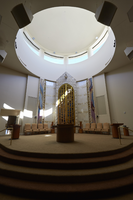
Photograph of Temple Beth Sholom Sanctuary, Las Vegas, Nevada, February 17, 2016
Date
Archival Collection
Description
Temple Beth Sholom's Sharon E. Sigesmund Sanctuary.
Image

Photograph of Abbey stained glass art in Temple Beth Sholom Sanctuary, Las Vegas, Nevada, February 17, 2016
Date
Archival Collection
Description
Stain glass work by Rita Deanin Abbey featured in Temple Beth Sholom's Sharon E. Sigesmund Sanctuary.
Image
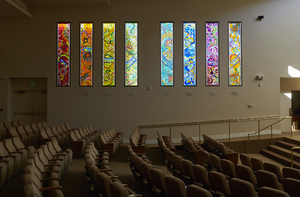
Photograph of Abbey stained glass art in Temple Beth Sholom Sanctuary, Las Vegas, Nevada, February 17, 2016
Date
Archival Collection
Description
Stain glass work by Rita Deanin Abbey featured in Temple Beth Sholom's Sharon E. Sigesmund Sanctuary.
Image
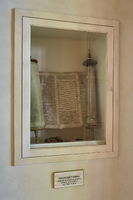
Photograph of Holocaust Torah at Temple Beth Sholom Sanctuary, Las Vegas, Nevada, February 17, 2016
Date
Archival Collection
Description
A Holocaust Torah on display at the entrance to Temple Beth Sholom's Sharon E. Sigesmund Sanctuary.
Image
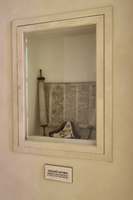
Photograph of Holocaust Haftorah at Temple Beth Sholom Sanctuary, Las Vegas, Nevada, February 17, 2016
Date
Archival Collection
Description
A Holocaust Haftorah on display at the entrance to Temple Beth Sholom's Sharon E. Sigesmund Sanctuary.
Image
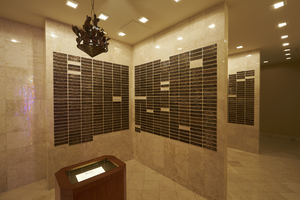
Photograph of Memorial Room and Yahrzeit at Temple Beth Sholom, Las Vegas, Nevada, February 17, 2016
Date
Archival Collection
Description
Plaques marking the names of departed temple members line the walls in a memorial room as the month's Yahrzeit are displayed at Temple Beth Sholom.
Image
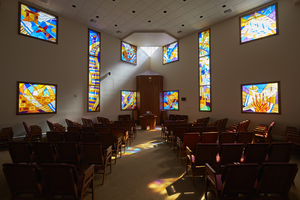
Photograph of Steinberg Chapel at Temple Beth Sholom, Las Vegas, Nevada, February 17, 2016
Date
Archival Collection
Description
Faye and Leon Steinberg Chapel at Temple Beth Sholom.
Image
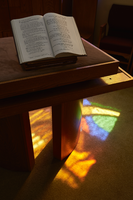
Photograph of Steinberg Chapel at Temple Beth Sholom, Las Vegas, Nevada, February 17, 2016
Date
Archival Collection
Description
Faye and Leon Steinberg Chapel at Temple Beth Sholom.
Image
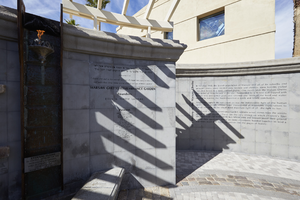
Photograph of Warsaw Remembrance Garden at Temple Beth Sholom, Las Vegas, Nevada, February 17, 2016
Date
Archival Collection
Description
The Warsaw Ghetto Remembrance Garden at Temple Beth Sholom. The garden features Eternal flame fixtures and stones from the Warsaw Ghetto.
Image
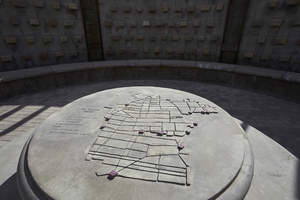
Photograph of Warsaw Remembrance Garden at Temple Beth Sholom, Las Vegas, Nevada, February 17, 2016
Date
Archival Collection
Description
The Warsaw Ghetto Remembrance Garden at Temple Beth Sholom. The garden features Eternal flame fixtures and stones from the Warsaw Ghetto.
Image
